| |||||||||||||||||
| |||||||||||||||||
| |||||||||||||||||
The 1967 Liberal Party leadership election was called following the resignation of Jo Grimond, in the wake of disappointing results in the 1966 general election.
| |||||||||||||||||
| |||||||||||||||||
| |||||||||||||||||
The 1967 Liberal Party leadership election was called following the resignation of Jo Grimond, in the wake of disappointing results in the 1966 general election.
There were three candidates (Jeremy Thorpe, Emlyn Hooson and Eric Lubbock), who were elected by a ballot of the Liberal Parliamentary Party using Alternative Vote. Jeremy Thorpe secured the most votes in the first round, but did not win overall, as the rules said that he needed to win more than half of votes cast. Both Hooson and Lubbock's second preferences voted for one another, cancelling one another out, so faced with a deadlock, both other candidates withdrew from the contest to endorse Thorpe who was consequentially elected unopposed.
Although the vote was by a secret ballot, Liberal MP Peter Bessell later published a memoir in which he asserted that Jo Grimond, John Pardoe, David Steel, James Davidson and himself all voted for Thorpe; Alasdair Mackenzie and Russell Johnston voted for Hooson; and Michael Winstanley and Richard Wainwright voted for Lubbock. All three candidates voted for themselves. Bessell also confesses to having caused some confusion by pledging his vote to both Thorpe and Hooson, although he ultimately cast his vote for Thorpe after realising that he had greater momentum. [1]
| Candidate | Votes | % | |
|---|---|---|---|
| Jeremy Thorpe | 6 | 50 | |
| Emlyn Hooson | 3 | 25 | |
| Eric Lubbock | 3 | 25 | |

The 1983 United Kingdom general election was held on Thursday 9 June 1983. It gave the Conservative Party under the leadership of Margaret Thatcher the most decisive election victory since that of the Labour Party in 1945, with a majority of 144 seats and the first of two consecutive landslide victories.

Joseph Grimond, Baron Grimond, was a British politician, leader of the Liberal Party for eleven years from 1956 to 1967 and again briefly on an interim basis in 1976.
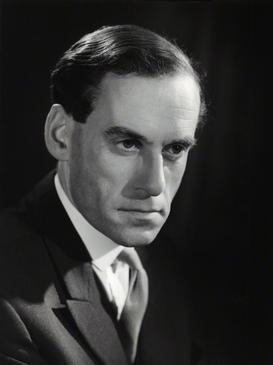
John Jeremy Thorpe was a British politician who served as the Member of Parliament for North Devon from 1959 to 1979, and as leader of the Liberal Party from 1967 to 1976. In May 1979 he was tried at the Old Bailey on charges of conspiracy and incitement to murder his ex-boyfriend Norman Scott, a former model. Thorpe was acquitted on all charges, but the case, and the furore surrounding it, ended his political career.

The 1964 United Kingdom general election was held on Thursday 15 October 1964. It resulted in the Conservatives, led by incumbent Prime Minister Alec Douglas-Home, narrowly losing to the Labour Party, led by Harold Wilson; Labour secured a parliamentary majority of four seats and ended its thirteen years in opposition since the 1951 election. Wilson became the youngest Prime Minister since Lord Rosebery in 1894.
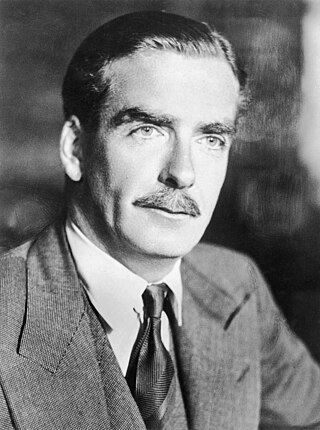
The 1955 United Kingdom general election was held on Thursday 26 May 1955, four years after the previous general election in 1951. It was a snap election: after Winston Churchill retired in April 1955, Anthony Eden took over and immediately called the election in order to gain a mandate for his government. It resulted in a majority of 60 seats for the government; the result remains the largest party share of the vote at a post-war general election. This was the first general election to be held during the reign of Elizabeth II. She had succeeded her father George VI the year after the previous election.

The 1959 United Kingdom general election was held on Thursday, 8 October 1959. It marked a third consecutive victory for the ruling Conservative Party, now led by Prime Minister Harold Macmillan. For the second time in a row, the Conservatives increased their overall majority in Parliament, this time to a landslide majority of 100 seats, having gained 20 seats for a return of 365. The Labour Party, led by Hugh Gaitskell, lost 19 seats and returned 258. The Liberal Party, led by Jo Grimond, again returned only six MPs to the House of Commons, but managed to increase its overall share of the vote to 5.9%, compared to just 2.7% four years earlier.
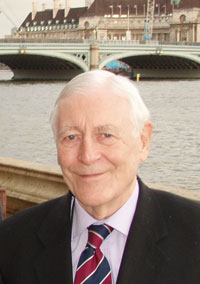
Eric Reginald Lubbock, 4th Baron Avebury, was an English politician and human rights campaigner. He served as the Liberal Member of Parliament for Orpington from 1962 to 1970. He then served in the House of Lords, having inherited the title of Baron Avebury in 1971, until his death. In 1999, when most hereditary peers were removed from the House of Lords, he was elected by his fellow Liberal Democrats to remain. When he died, he was the longest serving Liberal Democrat peer.

Edward Clement Davies was a Welsh politician and leader of the Liberal Party from 1945 to 1956.
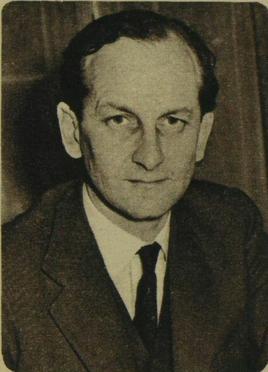
Mark Raymond Bonham Carter, Baron Bonham-Carter was an English publisher and politician. A member of the Bonham-Carter family, he was created a life peer in 1986.
The 1976 Liberal Party leadership election was called following the resignation of Jeremy Thorpe in the wake of allegations which would eventually lead to Thorpe's trial and acquittal for conspiracy to murder in 1979.
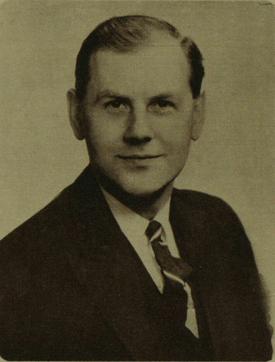
Hugh Emlyn Hooson, Baron Hooson, was a Welsh Liberal and then Liberal Democrat politician. He was the Member of Parliament (MP) for Montgomeryshire from 1962 until 1979.
Peter Joseph Bessell was a British Liberal Party politician, and Member of Parliament for Bodmin in Cornwall from 1964 to 1970.
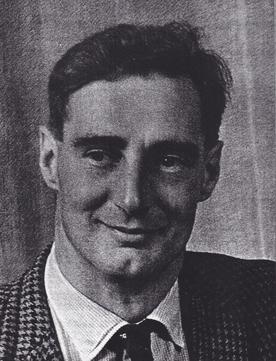
James Duncan Gordon Davidson was a British Liberal politician and farmer. He served as Member of Parliament for Aberdeenshire West from 1966 to 1970, when he chose not to stand again because of a family illness.
The Liberal Party was formally established in 1859 and existed until merging with the Social Democratic Party in 1988 to create the Liberal Democrats.

The Coventry North West by-election, in Coventry on 4 March 1976, was held after the death of Labour Member of Parliament (MP) Maurice Edelman. A safe Labour seat, it was won by Geoffrey Robinson, who retained the seat until 2019.
The Radical Reform Group was a pressure group inside the Liberal Party, set up in 1952 to campaign for social liberal and Keynesian economic approaches. According to Andrew Gamble, the Radical Reform Group believed that 'the task of Liberals was not to retreat from Social Liberalism but to propose ways in which the institutions and policies of the Welfare State and the managed economy could be improved and strengthened.'
Members of the British Liberal Party's Frontbench Team from 1956 to 1967 :
Members of the British Liberal Party's Frontbench Team from 1967 to 1976 :

The Thorpe affair of the 1970s was a British political and sex scandal that ended the career of Jeremy Thorpe, the leader of the Liberal Party and Member of Parliament (MP) for North Devon. The scandal arose from allegations by Norman Josiffe that he and Thorpe had a homosexual relationship in the early 1960s, and that Thorpe had begun a badly planned conspiracy to murder Josiffe, who was threatening to expose their affair.

A Very English Scandal is a British historical drama miniseries created and written by Russell T Davies, based on John Preston's 2016 book of the same name. It is a dramatisation of the 1976–1979 Thorpe affair and more than 15 years of events leading up to it.